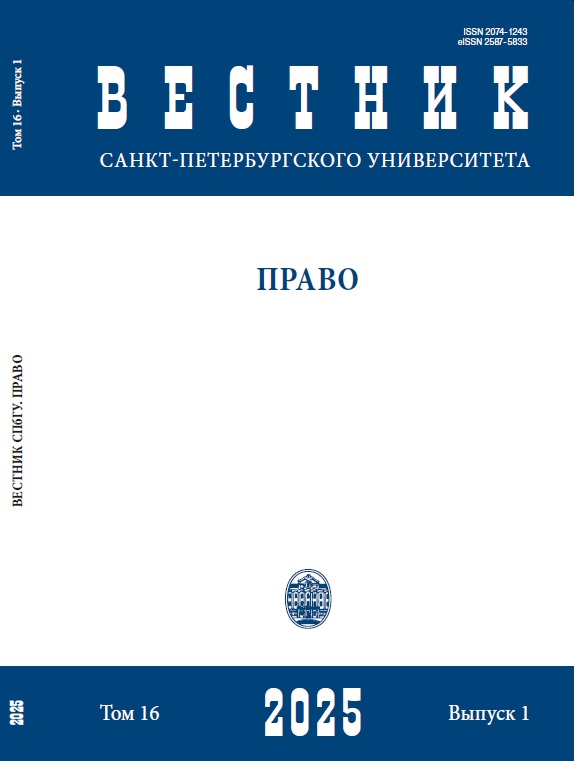The Republic of India as a transit location for committing transnational crimes in South Asia
DOI:
https://doi.org/10.21638/spbu14.2025.115Abstract
Crimes of a transnational nature have covered most of the states of South Asia, and their growth leads to the destabilization of both national and regional security. In this sense, individual states, such as the Republic of India, act as a transit location when committing crimes of a cross-border nature. Purpose: to assess the challenges and threats in the field of the spread of cross-border crime in the Republic of India and nearby states. To analyze the existing practices of combatting transnational crimes in the Republic of India. To propose qualitatively new mechanisms to combat this type of crime. To highlight the main reasons for the growth of transnational crime in South Asia. To outline the routes of committing crossborder crimes through India, both actually existing and used by criminals, and potential ones. Methods: general scientific methods (analysis and synthesis, induction and deduction, dialectics, abstraction and concretization); private scientific methods (formal-legal method, technical-legal method, method of interpretation of legal norms, historical-legal method and comparative legal method). Results: a schematic map of real and potentially possible ways of moving criminals, taking into account various types of information, is proposed and demonstrated. The role of India as a transit location in the commission of transnational crimes is evaluated. The author also presents methods of combating and preventing transnational crimes in India. Conclusions: the study showed that in many cases India acts as a transit location when committing cross-border crimes: criminals actively use the geographical location of India, as well as the ability to move freely across the border. It was concluded that transnational criminal groups affect not only the Indian law and order, but also the security and stability of nearby states. Despite the identified shortcomings in the work of law enforcement agencies, there are also positive practices in India.
Keywords:
transnational crimes, human trafficking, cybercrime, terrorist acts, terrorism, civil society, South Asia, Republic of India
Downloads
References
Downloads
Published
How to Cite
Issue
Section
License
Articles of "Vestnik of Saint Petersburg University. Law" are open access distributed under the terms of the License Agreement with Saint Petersburg State University, which permits to the authors unrestricted distribution and self-archiving free of charge.






